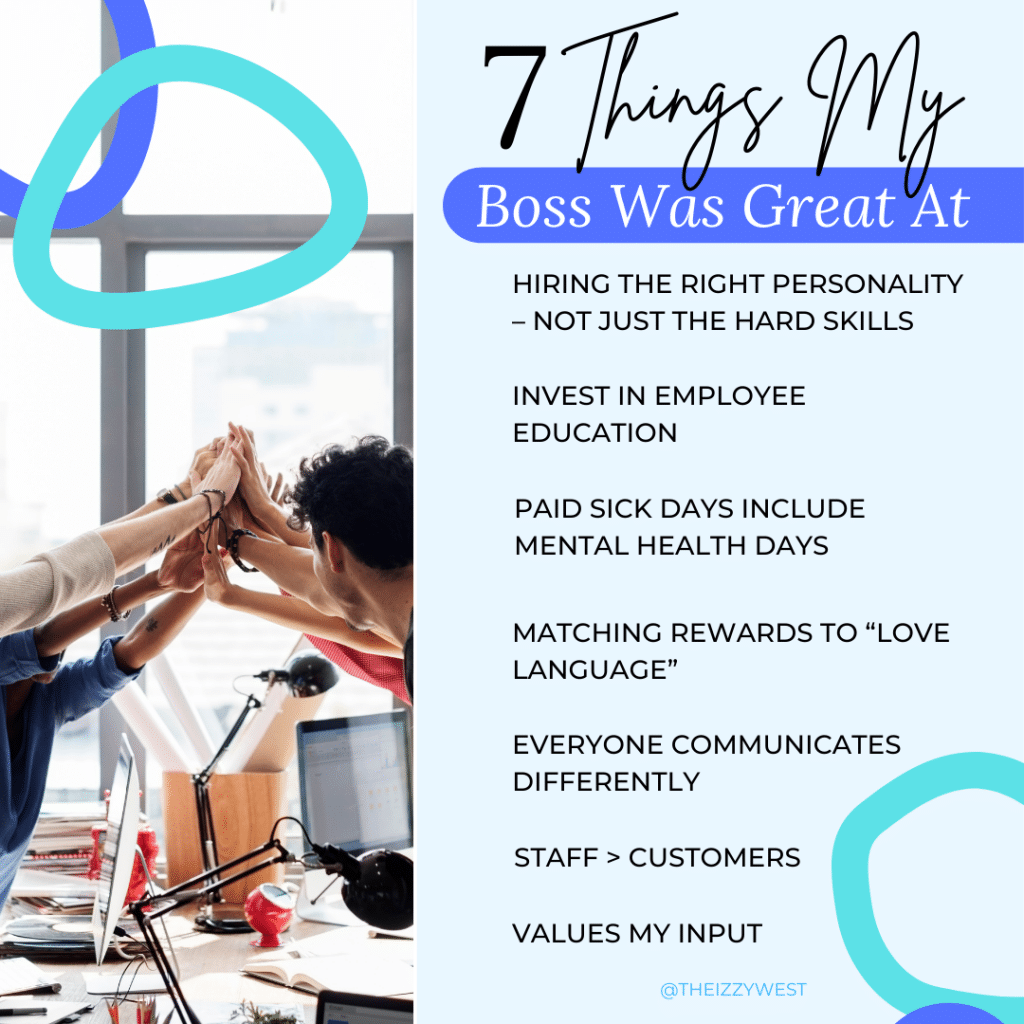How to be a good manager, from an employee’s point of view.
I’m very pleased to announce our President/CEO has been named the SC Chamber Executive of the Year! It came as a complete shock to her as our staff nominated her without her even knowing. So why do we like her so much?
Here are some takeaways any manager can duplicate:
Hiring the Right Personality – Not Just the Hard Skills
If you’ve been to IOM then you’ve taken the mandatory class on this.
My boss takes her time to ensure she’s hiring the right person that wants the chamber to be successful, will follow through to do what it takes to make the chamber successful, and is the right fit for the team.
While yes, we need to be able to get the job done, but many skills are teachable. Which brings me to:
Invest in Employee Education
Another reason I love my boss is she is willing to invest in our professional development.
While large companies might have tuition reinvestment programs, I won’t work for a company that doesn’t believe in me enough to send me to relevant conferences or seminars.
Jennifer has allowed me to to attend software training seminars, our state ACCE Staff & Leadership Conference, IOM, Internet Summit, and more. And it has paid dividends back to the chamber.
Paid Sick Days Include Mental Health Days
A new trend I think many industries are seeing is allowing employees to take “mental health days.”
While some see it as simple goodwill or a legitimate medical need, it also makes sense from a managerial standpoint to prevent burnout.
After all, do you really want an employee taking up space if they’re not being productive? I think you’ll see the benefit when they come back to work the next day, energized & ready to take on the world.
Matching Rewards to “Love Language”
Recognizing your employees is good. Recognizing your employees in a way that ‘speaks to them’ is great.
Example:
Many people would see being able to leave early as a perk, but not me. I’m hourly and I want my full paycheck. You know what I do love? Food. Bringing me snacks, gift cards, or an extended lunch break are great ways to reward me.
On the other hand, Heather is a Mom whose kids start school before we open and end school before we close. So Heather would love to leave early to pick up her kids.
Or maybe every time you go into to Carl’s office you notice he has tons of photos of llamas. So many llamas. And while out of town you notice a tiny llama figurine while looking for souvenirs. You know who’d love that figurine? Carl.

My point is, everyone is different and values different things. You will be an amazing boss if you get that.
Everyone Communicates Differently
It’s not just values that are different. Communication styles vary from person to person, too.
Is your staff people oriented or task oriented? Excitable or even-keel?
My boss is an extrovert that likes to talk things out and thrives on people. I’m not. But she understands that. She knows that instead of getting immediately excited, I’m going to start asking for details. I’m not questioning her idea, I’m just moving onto my internal next step.
With an introverted staff, she also has to make sure she’s asking us the right questions, as we may not naturally suggest the answers on our own.
If you communicate with your staff in a way that resonates with them, you’ll build trust and avoid miscommunication.
Staff > Customers
Another reason we love Jennifer is she stands by – and up – for us as a staff.
Don’t get me wrong, she holds us accountable, too. But she stands up for us when she needs to, whether it’s to the board or a member.
If you know your staff is right, don’t let a customer just walk all over them. And, if they did the right thing, tell them.
Values My Input
For many things, I can walk into Jennifer’s office and say “I think we should do X. It will [value].” And she will let me run with it.
She trusts me to know my industry, handle projects, and just listens to me.
If you don’t trust your employee to do a good job, then why are they there?

So.
Listen to your employees. Stand up for them. Understand their preferences. Invest in their health & education. And hire the right person in the first place.
Next:





